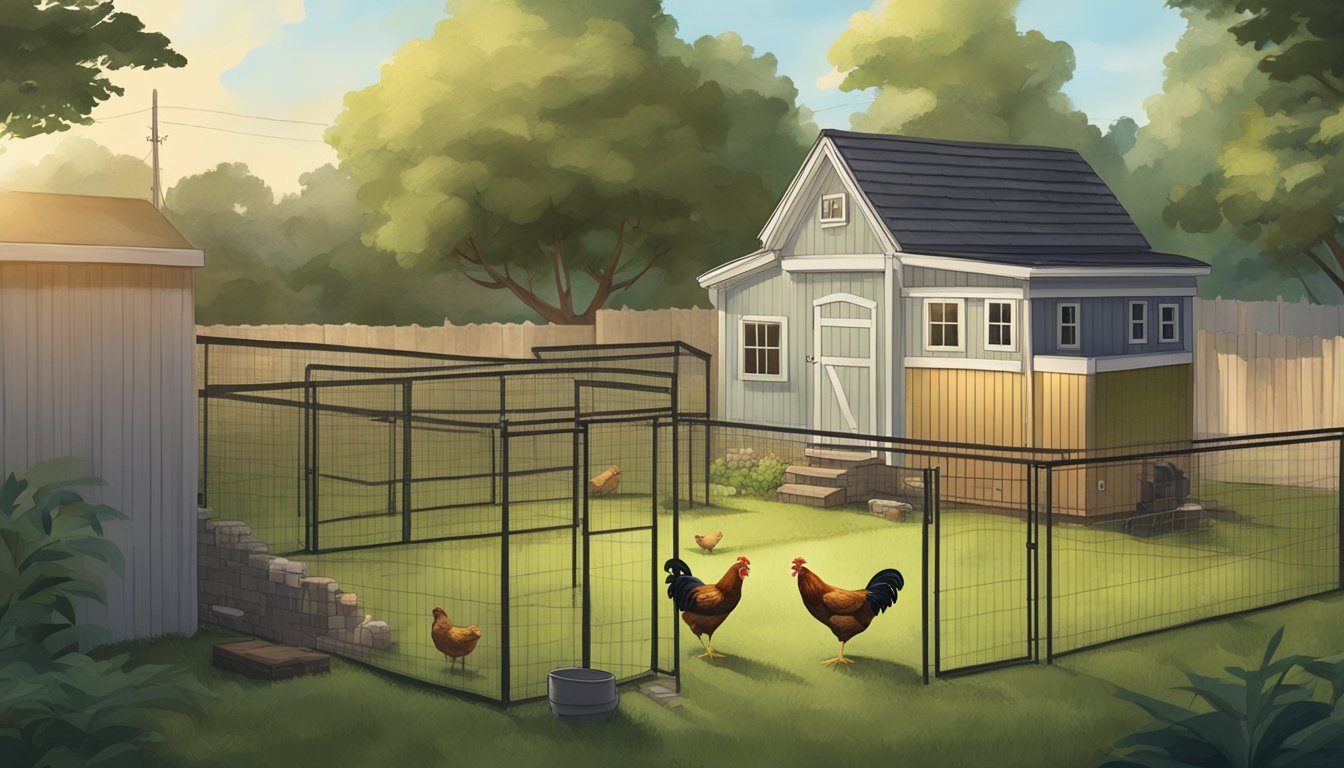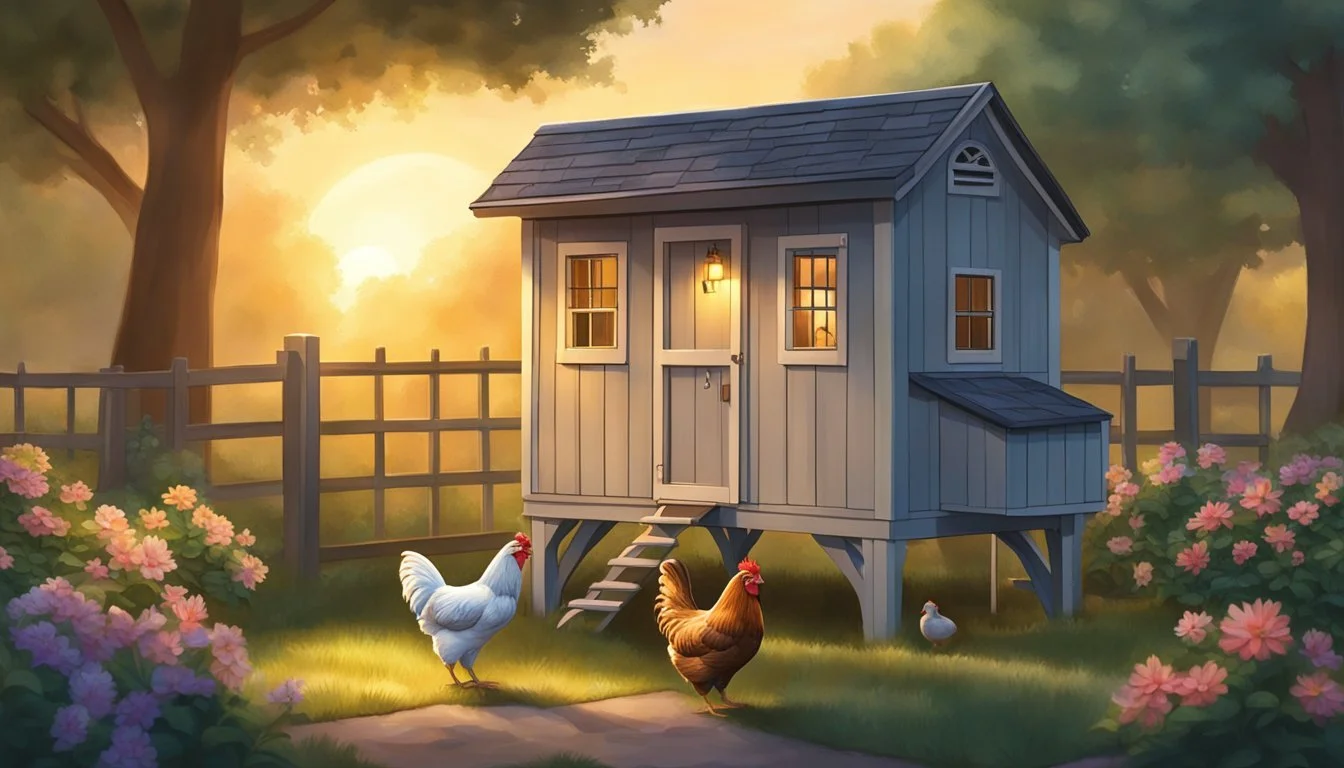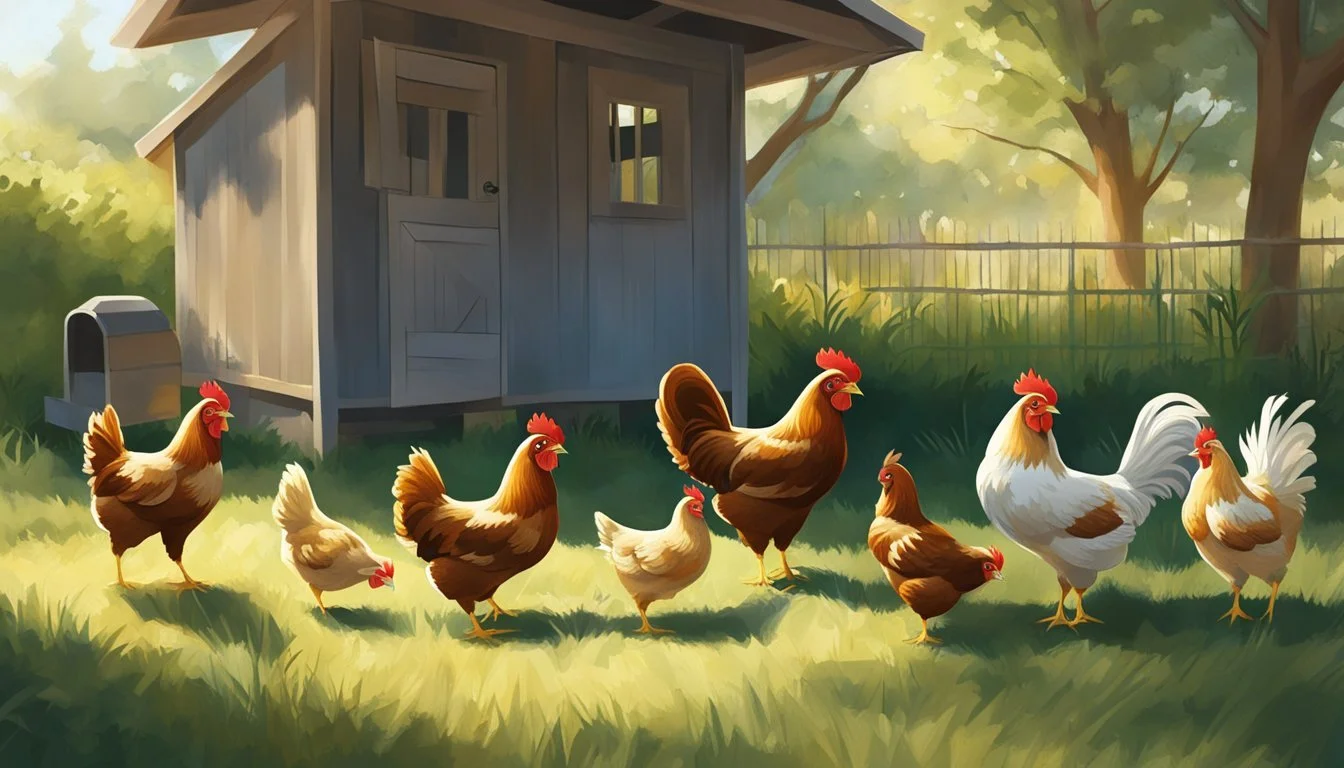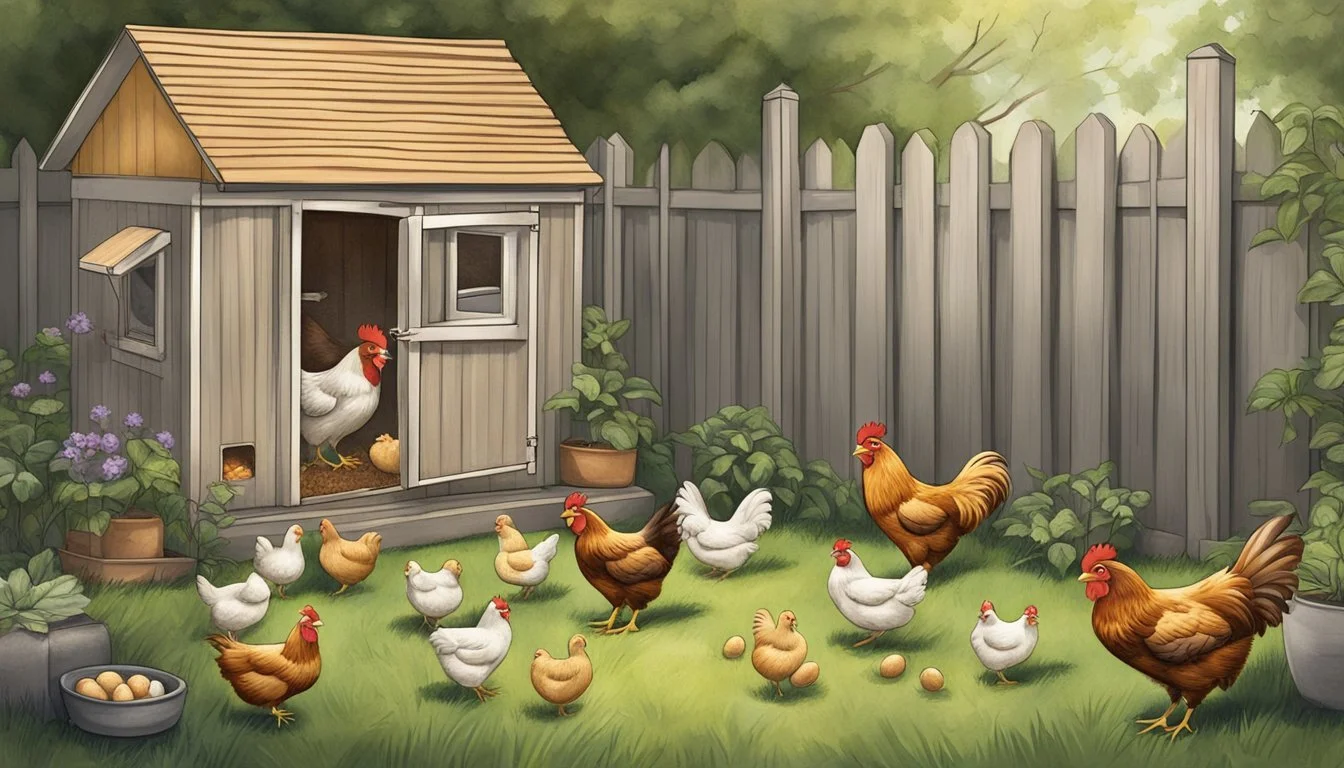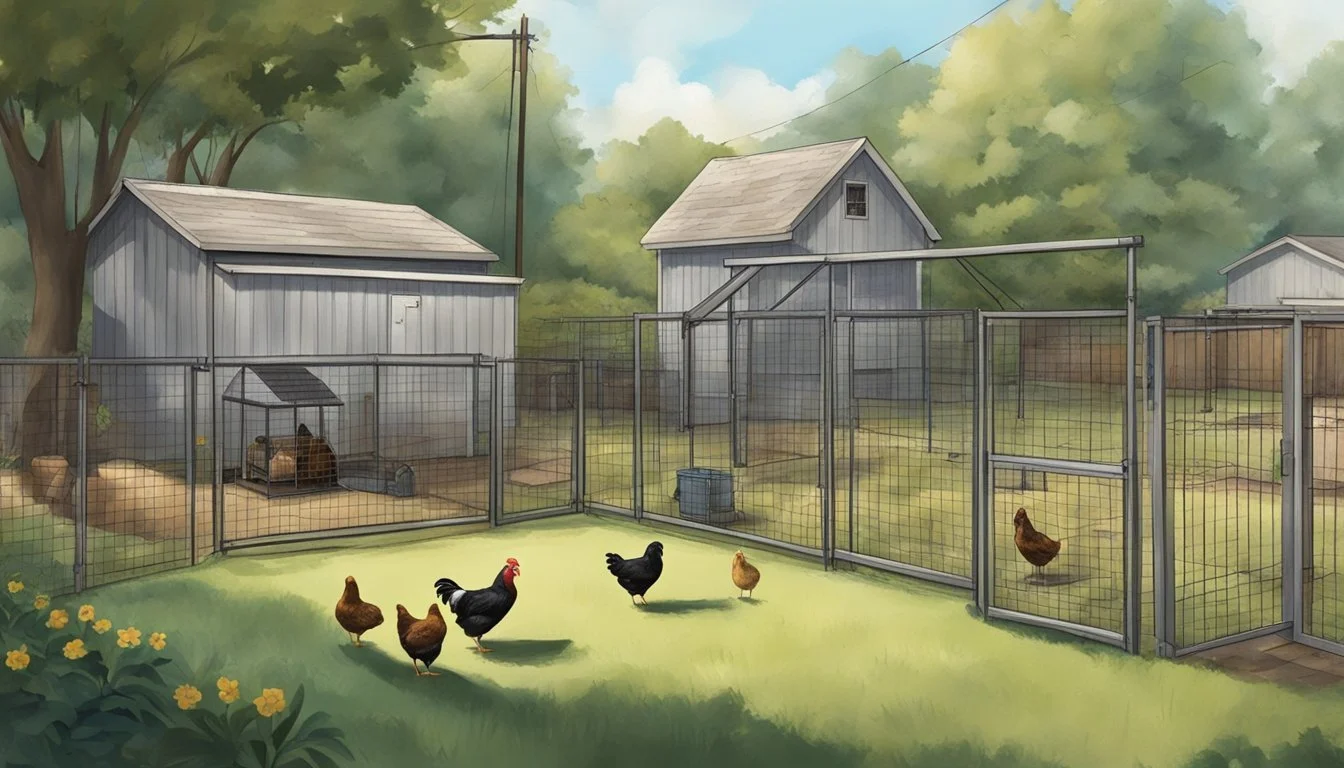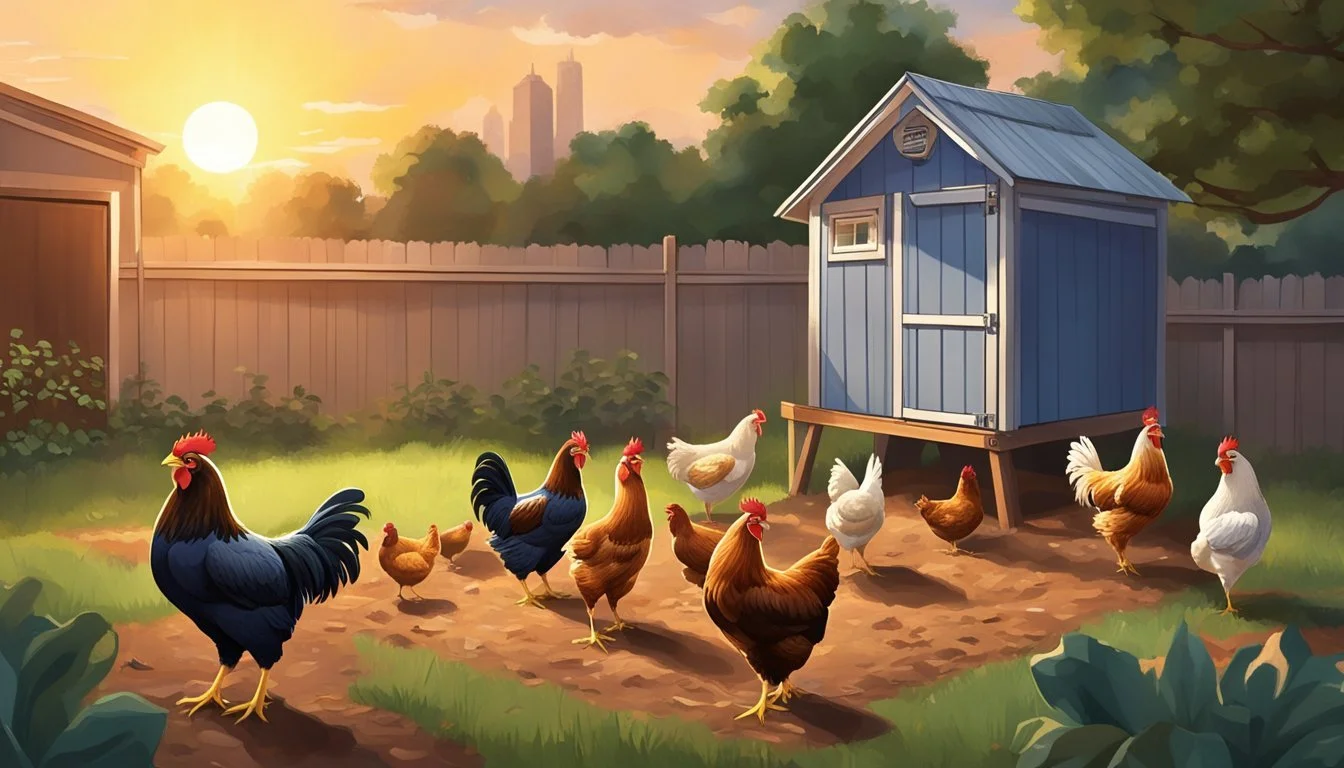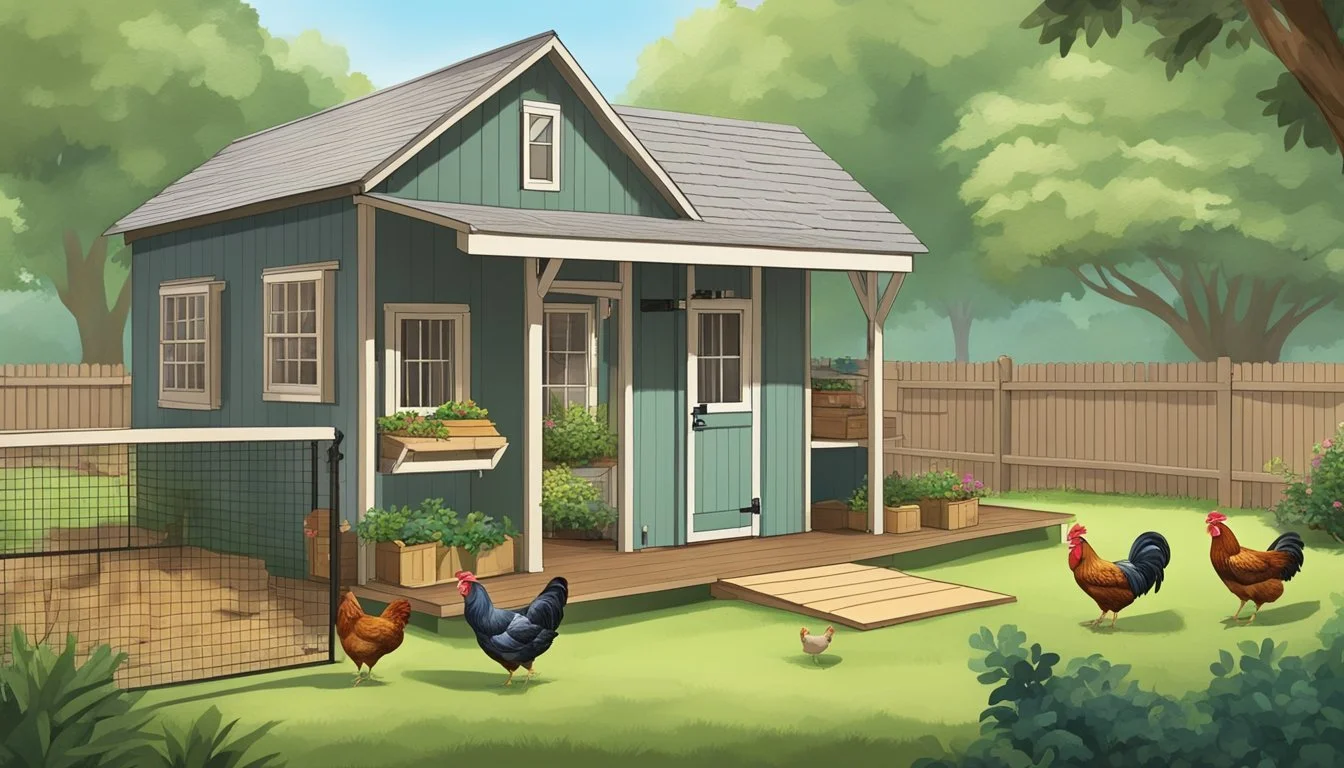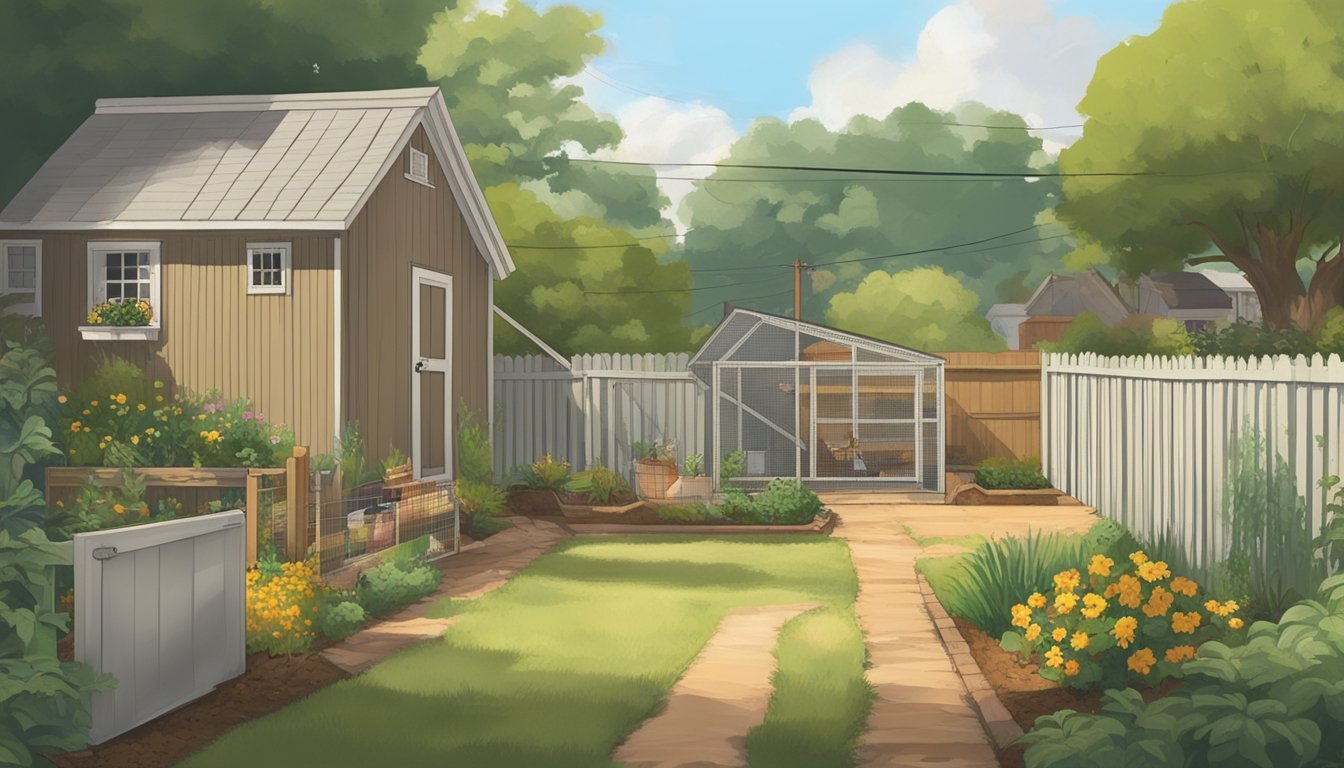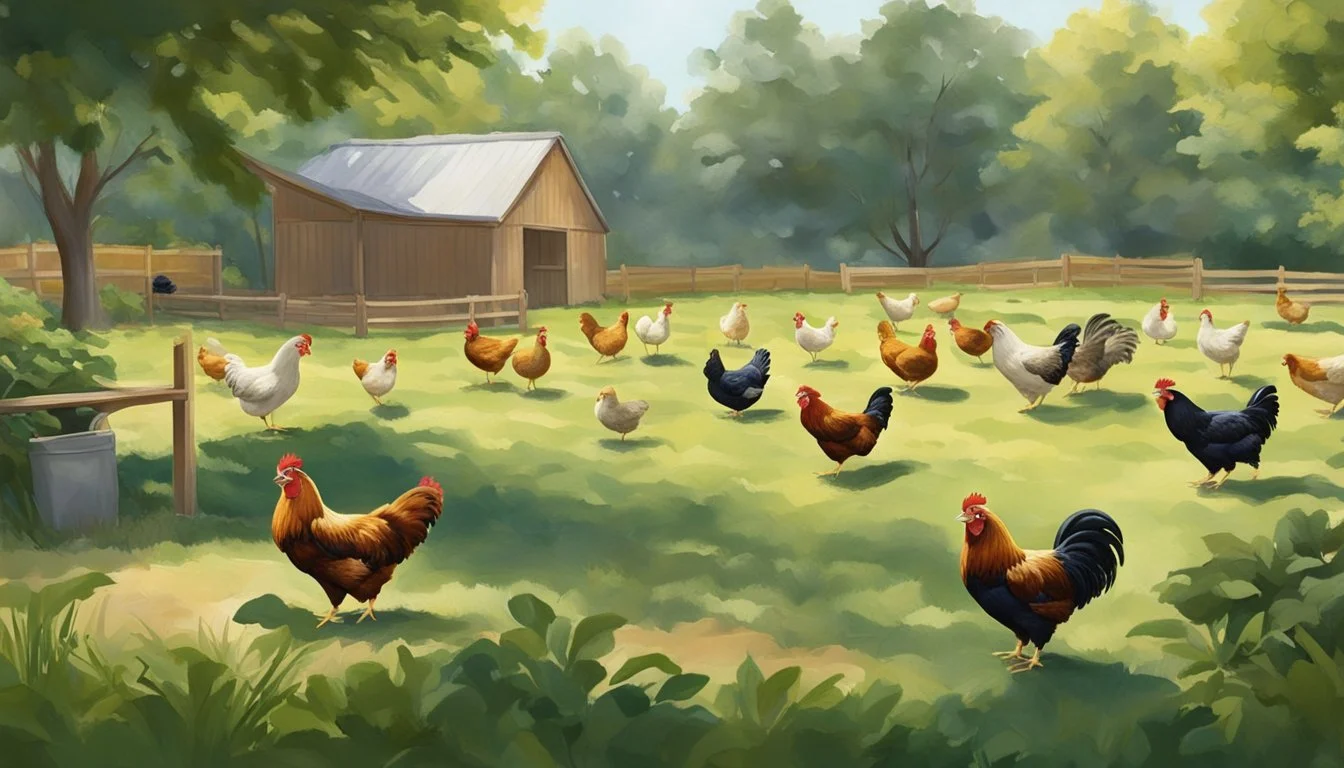Keeping Backyard Chickens in Lafayette, LA
Essential Tips for Urban Poultry Farmers
Raising backyard chickens has become an increasingly popular endeavor for residents in Lafayette, Louisiana. This trend aligns with a broader movement towards sustainable living, where individuals take a more hands-on approach to their food sources. In Lafayette, the local government has set regulations to ensure that this practice is conducted in a manner that is considerate of both the animals and the community. Residents who wish to keep chickens must adhere to these rules, including housing the chickens in secure and well-ventilated coops, to maintain a harmonious urban agricultural environment.
Understanding the legal framework is essential for any Lafayette inhabitant interested in keeping chickens. The city council has clearly outlined the need for proper enclosures that prevent poultry from roaming freely, addressing concerns for both animal welfare and public safety. Additionally, those raising chickens must ensure that their activities do not cause nuisances to neighbors, such as excessive noise or odors. Moreover, some areas may require permits, so prospective chicken keepers should consult with local government agencies to ensure compliance with any additional stipulations.
The practical aspects of raising chickens in a backyard setting demand a level of commitment and education on the part of the owners. Workshops and resources are available within the community, offering guidance on sustainable coop design and tips for keeping chickens healthy and productive. These resources are pivotal in supporting Lafayette residents in their pursuit of a rewarding experience with backyard chickens, contributing to a self-sufficient lifestyle and the local food movement.
Understanding Local Chicken Laws in Lafayette
Residents of Lafayette who are interested in keeping backyard chickens must navigate a selection of specific local ordinances designed to regulate the practice. The municipality of Lafayette provides clear guidelines that address a variety of factors including the allowance of roosters, property boundaries, and how local regulations compare to other cities in Louisiana.
Overview of Lafayette Chicken Ordinance
Under Lafayette's local government regulations, individuals are permitted to keep backyard chickens, including roosters. It is crucial for potential poultry owners to consult with Lafayette city officials to confirm the most current ordinances, as they are subject to change. The Lafayette Chicken Ordinance outlines the requirements for enclosures and restricts fowl from running at large. Compliance with these rules ensures harmony within the community and promotes the welfare of the chickens.
How Property Lines Affect Chicken Keeping
Lafayette's chicken ordinance stipulates that coops and enclosures must be adequately placed within the property lines to prevent public nuisance and maintain proper hygiene standards. Property owners need to be aware of their property boundaries and the relevant setbacks required by the ordinance. This consideration safeguards neighbors' rights and ensures a considerate approach to urban chicken keeping.
Comparison with Neighboring Cities' Chicken Laws
Compared to Lafayette's chicken regulations, neighboring cities in Louisiana have their own set of rules. Baton Rouge and New Orleans, for example, have their unique ordinances that may differ in terms of the number of chickens allowed, property line restrictions, and permit requirements. It's advisable for Lafayette residents to understand these variances, especially if they engage with other local chicken enthusiasts or participate in regional discussions about poultry regulations.
Setting Up the Perfect Chicken Coop
Setting up the ideal chicken coop in Lafayette, LA involves careful planning for safety, cleanliness, and functionality. Here are the key considerations to ensure your coop meets the essential needs of backyard chickens.
Essential Coop Features
A Lafayette chicken coop must have sturdy nesting boxes where hens can lay eggs, and sufficient roosts for them to perch on at night. The coop should be spacious to prevent overcrowding—typically 3-4 square feet per chicken inside the coop, and 10 square feet per chicken in an outdoor run. Adequate ventilation is essential to maintain air quality, but should not create drafts in cooler weather.
Maintaining Sanitary Conditions
To keep the chicken coop clean, it should be designed for easy access to change bedding regularly and to remove droppings. Use materials like straw or wood shavings that can be easily replaced. Install a droppings board beneath roosting areas to simplify daily cleaning, and establish a routine for a full coop cleanout, ideally every 1-2 weeks.
Predator Proofing Your Coop
In Lafayette, predators such as raccoons, foxes, and hawks pose risks to backyard chickens. Ensure the coop is fully enclosed with hardwire cloth, not chicken wire, as it's more durable against predators. Bury the wire at least 12 inches below ground to deter digging animals. Secure doors with locks or latches that cannot be easily manipulated by clever predators.
Coop Construction Guidelines
When constructing a chicken coop in Lafayette, LA:
Choose durable materials like treated wood to withstand humidity and severe weather.
The coop should be raised off the ground to avoid flooding and to deter pests.
Orient the coop to receive morning sunlight but remain shaded during the intense afternoon heat.
By incorporating these features, your chicken coop will be a safe and sanitary home for your backyard chickens, ensuring their well-being and productivity.
Chicken Health and Safety
Maintaining the health and safety of backyard chickens in Lafayette, LA, involves proactive management to prevent disease, ensure proper nutrition, and create a low-stress habitat. These factors are crucial for a thriving flock.
Protecting Chickens from Disease
To safeguard chickens against health issues, cleanliness is paramount. Their living area should be cleaned regularly to prevent the accumulation of waste and to control the spread of disease. Vaccinations may be required, and it's advisable to stay informed about local outbreaks that could affect poultry.
Frequent coop cleaning: Minimizes disease risk.
Isolation: Newly introduced birds should be quarantined.
Vaccination: Follow recommended protocols where applicable.
Proper Feeding and Nutrition
Chickens require a balanced diet to stay healthy. Commercial chicken feed typically provides a comprehensive mix of nutrients, but dietary supplements can also contribute positively to their health.
Complete chicken feed: Essential for balanced nutrition.
Grit: Helps with digestion.
Clean water: Must be accessible at all times.
Stress-Free Chicken Environment
Chickens are sensitive to stress, which can impact their immune system and make them more susceptible to diseases. Adequate space, proper shelter, and protection from predators are crucial components of a stress-free environment.
Space requirements: Avoid overcrowding to reduce stress.
Shelter: Protection from extreme weather conditions.
Predator defense: Secure the coop from common threats like raccoons and hawks.
By adhering to these guidelines, owners can ensure their chickens remain safe and healthy.
Everyday Care for Backyard Chickens
Providing adequate everyday care is essential for the health and wellbeing of backyard chickens in Lafayette, LA. A focus on daily maintenance and effective food and water management ensures a thriving flock.
Daily Maintenance Routines
The daily upkeep of a chicken coop is necessary to prevent the buildup of waste and minimize the risk of disease. Owners should inspect their coop daily to remove droppings and replace any soiled bedding. The coop should offer at least 4 square feet per bird to optimize comfort and cleanliness. Additionally, nesting boxes must be checked and cleared of eggs to encourage hens to continue laying.
Key daily activities include:
Inspection: Observe chickens for any signs of illness or distress.
Cleaning: Remove waste and refresh bedding where needed.
Egg collection: Collect eggs to prevent breakage and maintain cleanliness.
Water and Food Management
Chickens must have constant access to clean water and a diet appropriate for their age and purpose, whether for laying eggs or meat production. Waterers should be cleaned daily to prevent algae and bacteria growth.
Feeding guidelines involve:
Feeders: Use sturdy and easy-to-clean feeders to provide chickens with their daily food requirements.
Diet: Provide a balanced diet suited to the chicken's life stage. Layer feed for egg-laying hens is a must.
Ensuring these daily care routines are consistent aids in raising healthy, productive chickens in a backyard setting.
Understanding Chicken Behavior
Chickens display complex behaviors that are essential to their welfare and social structure. An understanding of these behaviors can greatly enhance the experience of raising chickens in a backyard setting.
Social Dynamics Among Chickens
Chickens maintain a social hierarchy known as the pecking order, which is crucial to their interaction and stability within a flock. They establish this hierarchy through various behaviors, including pecking, to assert dominance or submission.
Hens: They often have a separate hierarchy from roosters, with one hen typically emerging as the dominant figure among the group.
Roosters: A rooster may oversee the entire flock and often takes on a protective role. Roosters can also influence where hens lay eggs, provide guidance on food sources, and can be instrumental in resolving conflicts within the flock.
Chickens: All chickens, including both hens and roosters, use body language and vocalizations as part of their social interactions, which can indicate contentment, distress, or other states of being.
The health and productivity of a flock, including the quality and frequency of egg production, are tied to the stability of its social dynamics. Disruptions within the pecking order can lead to stress and aggression, potentially affecting the well-being of the chickens and the peace of the backyard environment.
Breeding and Hatching
In Lafayette, LA, backyard chicken enthusiasts looking to expand their flocks can do so by learning about breeding and hatching processes. Proper understanding of the roles roosters and hens play, along with managing the hatching of eggs, ensures a productive addition of new chicks.
Raising Chicks
After successful fertilization by a rooster, a hen will lay hatching eggs. These eggs need consistent warmth and humidity to develop properly, which the hen provides naturally. Those opting for artificial incubation need to monitor temperature and turn the eggs at least three times a day. Once the chicks hatch, it's crucial to provide them with proper care for their survival and growth.
The first 24 hours:
Without food or water: Newly hatched chicks can survive without food or water for this period.
Natural oils absorption: Allows time for them to absorb the remaining yolk and natural oils from their feathers.
Setting Up a Brooder Area
The brooder area acts as a temporary chicken house for young chicks until they can join the rest of the flock. It is essential to equip this space with the appropriate heat source, bedding, and ample space to prevent overcrowding and ensure the health and safety of the chicks.
Essential components of a brooder area:
Heat source: Maintain a temperature of 95°F during the first week, reducing it by 5°F each subsequent week.
Bedding: Use pine shavings or similar materials for absorbing droppings and provide comfort.
Space: Minimum of 0.5 square feet per chick to prevent pecking and allow free movement.
Providing a well-maintained brooder area and understanding the basics of hatching and chick care are key to raising a healthy, productive backyard flock in Lafayette, LA.
Community Relations
In Lafayette, LA, maintaining good community relations is essential for residents interested in raising backyard chickens. Keeping neighbors informed and being considerate can mitigate potential conflicts.
Noise and Neighbor Considerations
Noise is a primary concern for Lafayette residents keeping chickens. Hens typically make less noise than roosters; however, all poultry can become a nuisance if not managed properly. They recommend:
Talking to Neighbors: Before bringing chickens into your backyard, it’s considerate to discuss with those living nearby. Transparency can foster goodwill and preempt complaints.
Noise Mitigation: Implementing quiet hours, especially in the early morning, can prevent chickens from disturbing neighbors.
It's essential to be aware that roosters are more likely to cause noise that could disrupt the neighborhood. Homeowners should check local ordinances, as there may be specific rules regarding rooster ownership.
Engaging with Homeowner Associations
Homeowner associations (HOAs) often have rules that exceed city ordinances. Here are key actions to take:
Review HOA Bylaws: Carefully examining the rules set forth by homeowner associations is critical. Some associations may outright forbid poultry, while others may have restrictions concerning coop placement and the number of birds allowed.
HOA Approval: If keeping chickens is allowed, obtain formal approval before setting up a coop. This approval can prevent future disputes and ensure that all regulations concerning public health and pets are met.
Homeowner associations aim to maintain neighborhood standards, and it's imperative to operate within their guidelines to avoid legal issues or fines.
Regulatory Considerations for Other Poultry
When keeping poultry in Lafayette, LA, beyond chickens, it's important to understand the specific regulations that apply to other birds such as ducks, geese, pigeons, and turkeys.
Legalities for Ducks, Geese, Pigeons, and Turkeys
Lafayette, LA, presents a unique set of ordinances concerning the keeping of various fowl. Regulations may vary in terms of the number of animals allowed, housing requirements, and restrictions based on zoning. Homeowners should verify the specifics with Lafayette's local ordinances, as they can differ significantly from those relating to chickens.
Ducks and Geese: Typically grouped together due to their similar aquatic nature, ducks and geese regulations focus on provisions for water access and space requirements. These birds must have enough space to roam and access to clean water to swim. In some cases, permits may be required, and nuisance factors such as noise and the potential attraction of predators are taken into account.
Pigeons: Urban pigeon keeping, often associated with pigeon racing or as a hobby, requires adhering to regulations about coop size and placement. Restrictions aim to minimize health risks and nuisances to neighbors. Additionally, there may be specific requirements for routine care and the management of waste.
Turkeys: Turkeys, being larger birds, require more space and may have more constraints due to their size and the potential for noise. There may be a cap on how many turkeys can be kept in a residential area, and the enclosures have to accommodate their larger size.
Residents considering keeping other types of poultry should directly consult the Lafayette Animal Control or local government websites to ensure compliance with current regulations and to obtain any necessary permits before acquiring these birds.
Managing Excess and Byproducts
When raising backyard chickens in Lafayette, LA, owners must handle excess resources and byproducts responsibly, ensuring waste is disposed of properly and slaughtering adheres to local regulations for the health and well-being of the community.
Proper Disposal of Chicken Waste
Chicken waste is a potent fertilizer but needs proper composting to prevent the spread of pathogens and reduce odor. Residents must compost chicken waste in designated bins, allowing it to break down properly before use. The compost should undergo a heat cycle to kill harmful bacteria, which can be achieved through regular turning and monitoring of the pile's temperature.
For those not interested in composting, the City of Lafayette may provide waste disposal services. Owners should contact local waste management authorities to find out about the specific guidelines for chicken waste removal in their area, ensuring they adhere to Lafayette's ordinances to maintain public health.
Local Regulations on Slaughtering
While slaughtering chickens provides a source of meat, Lafayette residents need to be aware of local ordinances that regulate this practice. Home slaughtering must be done in a humane and sanitary manner. It is recommended that owners perform the slaughtering out of public view to respect community sensibilities and local guidelines.
Owners should contact the Lafayette City Council to inquire about any necessary permits or restrictions associated with slaughtering chickens. They should also ensure that they are up to date with any changes in the law and maintain high standards of cleanliness during the process to minimize health risks.
Advanced Chicken Keeping Topics
Advanced chicken keeping requires a deep understanding of genetics and productivity to enhance the quality and efficiency of a flock.
Selective Breeding Practices
Selective breeding involves choosing certain chickens to reproduce based on desired traits. The goal is to produce offspring that exhibit these qualities more intensely with each generation. Research is vital in this process as it helps identify the hereditary lines and the traits they carry.
Key elements in selective breeding:
Genetic Variance: Understanding the genetic diversity within a flock is crucial.
Trait Selection: Identifying and selecting for traits that are beneficial, such as temperament, egg production, and disease resistance.
Developing a Productive Flock
Developing a productive flock requires more than just breeding; it calls for a strategic approach to managing both pullets and adult birds. Flock productivity hinges upon proper care from the hatching of eggs to the raising of chicks into fully grown chickens.
Considerations for a productive flock:
Hatching Eggs: Optimal conditions for incubation to maximize hatch rates.
Pullets: Monitoring growth and health to ensure they mature into productive hens.
Adults: Sustaining high production through nutritional support and disease prevention.
Careful oversight at each stage ensures a robust and prolific flock.
Legal and Administrative Insights
In Lafayette, LA, backyard chicken keepers must navigate a set of local ordinances designed to balance the needs of residents with community standards. These regulations are framed to ensure harmony and public health within residential spaces.
Navigating Chicken Laws at the Municipal Level
When Lafayette residents consider raising chickens, they must adhere to specific local laws that regulate poultry ownership. These laws are in place to address potential issues related to noise, sanitation, and animal welfare. Understanding and complying with these chicken laws is crucial for any aspiring chicken owner.
Residential Restrictions:
Single-family homes or duplexes: Allowed to keep an unlimited number of chickens.
Apartments and Condominiums: Generally not allowed to house chickens.
Legal Requirements for Coops:
Coops must be situated at least 10 feet from any property line.
Coops should be 25 feet away from any neighboring residence.
Officials' Role: Local officials are responsible for the enforcement of these laws and may intervene if there are complaints or violations. They ensure that backyard chickens do not become a nuisance to neighbors and that the conditions in which the chickens are kept meet health and safety standards.
Residents should consult with local officials before setting up a chicken coop to understand any recent legal changes or additional requirements. Keeping up to date with local ordinances is imperative as Lafayette may have unique stipulations that differ from broader Louisiana state laws.
Conclusion
Raising chickens in the backyards of Lafayette, Louisiana, presents an opportunity for residents to enjoy a self-sustainable lifestyle. Homeowners and occupants of duplexes can take advantage of the local regulations that permit unlimited chicken keeping, providing they adhere to specific spatial requirements for coops and property lines.
Residents must ensure that their chicken coops are at least 10 feet from any property line and 25 feet from neighboring homes. This spacing helps maintain a safe and healthy environment for both the chickens and the community.
A well-maintained chicken habitat contributes to a productive flock, yielding eggs and potential educational benefits for all ages. It is crucial to remember that apartments and condominiums may have restrictions preventing the keeping of backyard chickens.
Chickens should be confined to prevent them from roaming free, as at-large chickens are prohibited under Lafayette's city ordinances. Individuals opting for raising chickens must also be cognizant of sanitation practices to minimize noise and maintain a harmonious neighborhood.
The residents of Lafayette can take pride in their alignment with the state's amenable chicken laws, tailored to support backyard chicken enthusiasts. With respectful and responsible husbandry, homeowners can ensure that their practices remain beneficial to both their households and the larger community.


